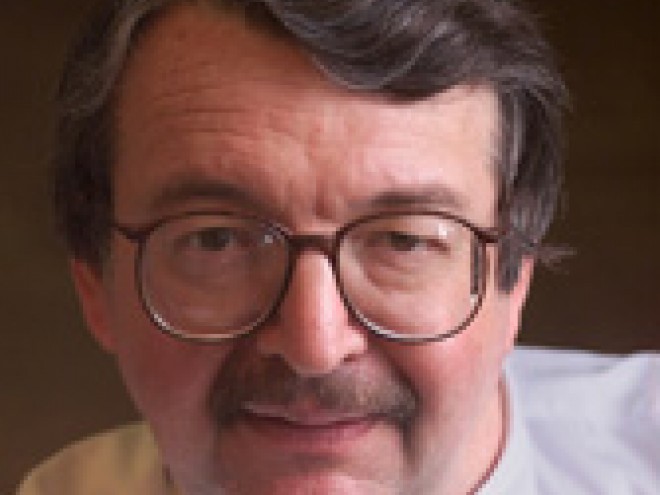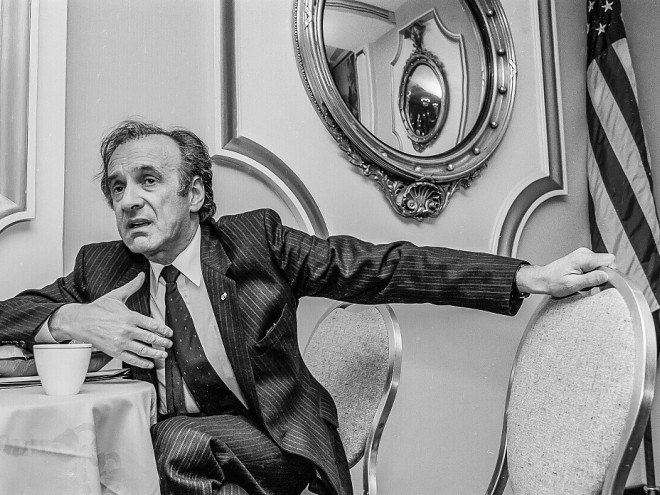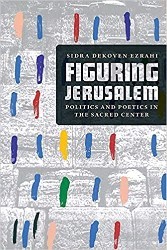“I wrote to testify, to stop the dead from dying, to justify my own survival,” Elie Wiesel once said, forcing the world to acknowledge the Holocaust. With his haunted eyes and impassioned words, he took on an almost prophet-like presence.
Winner of the 1986 Nobel Prize for Peace, Wiesel (1928 – 2016) was an outspoken advocate for human rights and victims of oppression, a force behind the founding of the US Holocaust Memorial Museum, a supporter of Israel, a memorable speaker and professor, and the author of sixty books — most notably Night, the searing account of his time in Auschwitz. But as Joseph Berger traces Wiesel’s unlikely journey from a small town in Hungary to world prominence, he also shows Wiesel in all his complexities, as an unaffected, fallible man who kept his faith even while struggling with God.
As a reporter for the New YorkTimes, Berger had firsthand knowledge of many of the important events in Wiesel’s career, and even knew him personally. To support this deeply researched and engrossing biography, he turned to Wiesel’s extensive writings and the archives at Boston University, where Wiesel taught for almost four decades. He also spent long hours with Wiesel’s colleagues and family, shedding light on the private side of Wiesel’s increasingly public life.
Wiesel was born in Sighet, a town in Hungary that in some ways he never left. He took delight in Hasidic melodies, Jewish study and tradition, the silence of Shabbat afternoons, and his grandfather’s exuberant faith and love of music. His life in Sighet ended abruptly and brutally in May 1944, when the last Jews were deported from the town. As Wiesel and his father were steered into Birkenau, he saw his mother and beloved younger sister one final time.
While Wiesel’s public career began in his late forties, Berger makes a point of invoking the years during which Wiesel recovered and reshaped his life. After liberation, he found his footing by returning to his Talmudic studies. When France opened a center for surviving teenagers, Wiesel resumed his education there. Soon fluent in French, he studied at the Sorbonne, read widely, enjoyed Left Bank cafes, founded choral groups, and admired beautiful women.
Wiesel’s career as a writer began as part of an unsuccessful attempt to fight for Israel in the war against the new state. After he was declared physically unfit, he became a translator for an Irgun newspaper. When the paper shut down, he jumped at the opportunity to serve as a correspondent in Israel for a French Jewish paper. The six months he spent there were unsettling. Israelis looked down on survivors as cowards who meekly went to the camps; and he was troubled by political infighting and attitudes toward Palestinians. But he left with a press card as a correspondent for the nascent Yedioth Ahronoth—and was now an accredited journalist.
An assignment took Wiesel on a six-week ocean trip, during which he met a Jewish publisher from Argentina. He saw Wiesel with a manuscript and asked about it; and, in 1956, he showed the publisher a Yiddish version of what would ultimately become Night. It was published in French in 1958 and again in English two years later, at a time when many were reluctant to face the Holocaust. Questions have arisen about the authenticity of the manuscript; but whatever the quibbles about the various editions and its original small sales, Berger points out that there can be no doubt about the profound issues raised in Night and its influence worldwide.
Upon his return from Israel, Yedioth Ahronoth offered Wiesel a job as a correspondent in New York. He was soon part of the city’s vibrant refugee community, and began freelancing and reporting for Yiddish newspapers. When his visa expired, the stateless Wiesel got a green card, the first step toward American citizenship.
Through his writing, Wiesel’s public voice was gaining force. On a trip to the Soviet Union in 1965, he took to heart the oppression of the Soviet Jews, who were locked in a country that did not allow them to practice openly or emigrate. His moving The Silence of the Jews, along with demonstrations and ongoing pressure on Congress, finally forced the Soviet Union to relent.
Israel’s extraordinary victory in the Six-Day War brought even more attention to Wiesel. Suddenly everyone wanted to know about the Holocaust; and Wiesel, with his personal history and striking presence, became the public voice of the survivors, constantly called on to speak. His lectures displayed his broad knowledge and personal charm and led to a long career as a professor. And he continued to write extensively throughout these years, drawing on his memories and his rich knowledge of Hasidism and Jewish tales.
One strength of Berger’s book lies in his account of how Wiesel’s prominence gave him the opportunity to address matters of vital concern to the Jewish community. In 1978, President Jimmy Carter announced the establishment of a memorial to the Holocaust and named Wiesel chairman of the commission that would determine its form. He was adamant that, first and foremost, the museum must fully record the destruction of European Jewry as a unique historical event, before acknowledging the other victims of Nazi persecution and other genocides. He also insisted on an accurate account of the response in Europe and the United States during the war.
In March 1985, President Reagan announced a visit to Germany, where he would lay a wreath at a German military cemetery in Bitburg, in which SS members were buried. He had no plans to visit any concentration camps. The event galvanized the American Jewish community as well as veterans and human rights activists. To make matters worse, Wiesel was scheduled to receive the Congressional Gold Medal two weeks before Reagan’s trip. In a speech in which he expressed his respect and admiration for the president, Wiesel exhorted him “to find another way … [Bitburg] is not your place, Mr. President. Your place is with the victims of the SS.” Reagan ultimately proceeded with the laying of the wreath, but added a visit to Bergen-Belsen to the trip.
In showing all sides of Wiesel, including his difficult final years, Berger paints an utterly human portrait. Wiesel was not above personal disagreements or the pleasures of prominence. An observant Jew, he grappled with God throughout his life, and he struggled with Israel, staunchly and publicly supporting the state even while wishing it would set a moral example. Above all, Wiesel was, in the words of the Nobel committee, a messenger of “peace, atonement, and human dignity” to mankind who went to extraordinary lengths to fight for the rights of oppressed people all over the world.
Maron L. Waxman, retired editorial director, special projects, at the American Museum of Natural History, was also an editorial director at HarperCollins and Book-of-the-Month Club.




